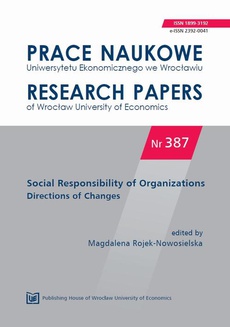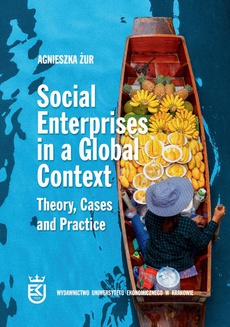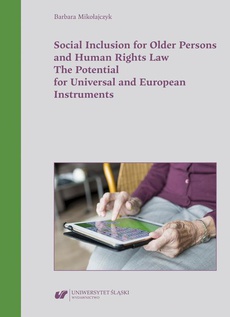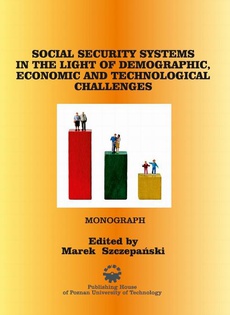POLECAMY

Social Responsibility of Organizations Directions of Changes. PN 387
Redakcja:
Format:
ibuk
Changes in different aspects of our life that we witness do not omit the corporate social responsibility (CSR) area. Thus, it is impossible to omit a new approach to defining the above-mentioned concept, initiated by the European Commission. The new definition of corporate social responsibility does not underline the voluntary way of taking part in social initiatives (“companies integrate social and environmental concerns in their business operations and in their interaction with their stakeholders on a voluntary basis” – COM (2006) 136), but directly indicates “the responsibility of enterprises for their impacts on society” (COM (2011) 681).
The change in defining the CSR concept can be related to Visser’s view of CSR. He defined CSR stages by applying IT nomenclature and using the 1.0 and 2.0 abbreviations (as CSR 1.0 and CSR 2.0) to determine the newer version of CSR and emphasizing a certain continuity with the previous one. He mentioned and described also the possible changes in the CSR area and defined five stages that are determined by the economic age of an enterprise.
Obviously, although the stages that Visser proposed have their logical continuity (age of greed, philanthropy, marketing, management and finally responsibility), it will not be easy in economic everyday practice to unequivocally identify the current level of development of CSR on a global scale. There are visible large development disparities even on the Polish territory, not to mention a larger scale.
Therefore, it is worth asking about the future directions of CSR development. The reference point (at least on the European scale) can be the renewed EU strategy 2011–14 for Corporate Social Responsibility. It mentions, among others, the need to enhance the visibility of CSR and disseminate good practices, improve and track levels of trust in business, improve company disclosure of social and environmental information, integrate CSR into education, training and research, emphasize the importance of national and sub-national CSR policies.
In response to such a task (especially in relation to the need for integrating CSR into education and research), I present with pleasure the Research Papers of Wrocław University of Economics, which is a set of Polish perspective on selected current and future problems in the area of CSR. At this point I wish to address my thanks to the reviewers of the Research Papers, whose efforts in the form of comments and suggestions expressed in the reviews contribute also a special part to the CSR discussion held on the pages of the current volume.
| Rok wydania | 2015 |
|---|---|
| Liczba stron | 266 |
| Kategoria | Publikacje darmowe |
| Wydawca | Wydawnictwo Uniwersytetu Ekonomicznego we Wrocławiu |
| ISBN-13 | 978-83-7695-502-5 |
| Numer wydania | 1 |
| Język publikacji | angielski |
| Informacja o sprzedawcy | ePWN sp. z o.o. |
Ciekawe propozycje
Spis treści
| Introduction | 9 |
| Kazimierz Banasiewicz, Paweł Nawara: Values in the market society and valuation on the free market | 11 |
| Kinga Bauer, Joanna Krasodomska: The premises for corporate social responsibility in insolvency proceedings | 20 |
| Marzena Cichorzewska, Marta Cholewa-Wiktor: The influence of social innovation upon the development of regions and organizations | 30 |
| Barbara Fryzeł: CSR, organizational identity and behavioral outcomes. A mediating role of perceptions and trust | 41 |
| Urszula Gołaszewska-Kaczan: Actions for promoting work–life balance as an element of corporate social responsibility | 54 |
| Katarzyna Klimkiewicz, Ewa Beck-Krala: Responsible rewarding systems – the first step to explore the research area | 66 |
| Janusz Kroik, Jan Skonieczny: The use of business models in forming corporate social responsibility | 80 |
| Joanna Kuzincow, Grzegorz Ganczewski: Life cycle management as a crucial aspect of corporate social responsibility | 91 |
| Ewa Mazur-Wierzbicka: Implementing the work–life balance as a CSR tool in Polish companies | 109 |
| Marta Miszczak: The communication of CSR policy to customers by discount stores in Poland on the basis of Lidl and Biedronka | 122 |
| Magdalena Popowska: CSR and small business from the international and national perspective | 136 |
| Marcin Ratajczak: Understanding the concept of CSR in small and medium- -sized enterprises in agribusiness | 149 |
| Anna Stankiewicz-Mróz: Ethical code and whistleblowing as CSR tools in pharmaceutical companies | 158 |
| Ewa Stawicka: Corporate social responsibility in the SME sector. An analysis of the key aspects and pillars of developing the CSR strategy | 170 |
| Tomasz Wanat, Magdalena Stefańska: Company’s CSR activities addressed to its employees – diffusion of CSR to customers by employees | 180 |
| Anna Waligóra: Selected legal aspects of social entrepreneurship functioning in Poland in the context of the provisions set forth in the act of 27 April 2006 on social co-operatives | 191 |
| Przemysław Wołczek: Development of the CSR concept in Poland – progress or stagnation? | 200 |
| Grzegorz Zasuwa: Basic values and attitudes toward cause-related marketing | 215 |
| Halina Zboroń: Social economics – from the profit oriented market to the social entrepreneurship | 229 |
| Krzysztof Zięba: CSR knowledge and perception in Polish SMEs: Evidence from the region of Pomerania | 240 |
| Agnieszka Żak: Triple bottom line concept in theory and practice | 251 |
























